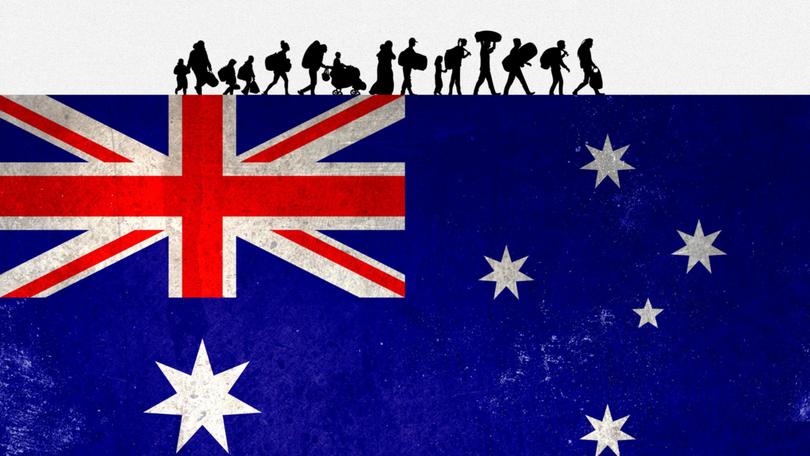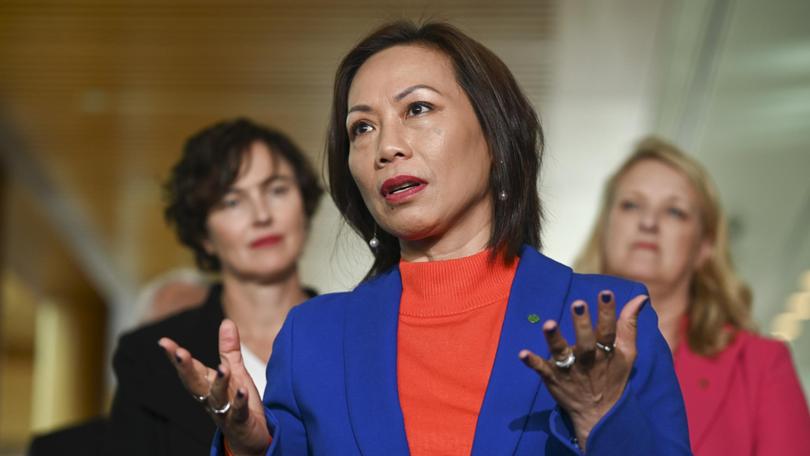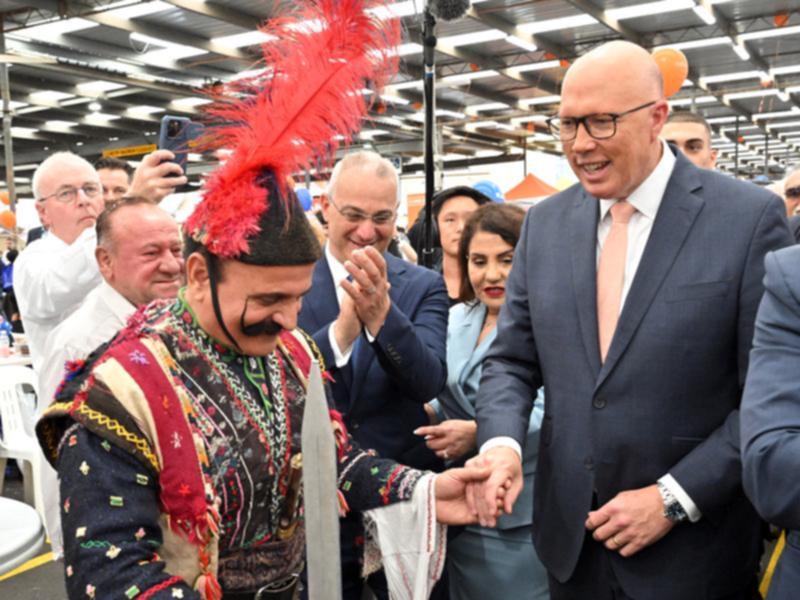Federal Election 2025: Quiet but potent, immigration remains a major factor in the election
AARON PATRICK: Voters regard the cost of housing as one of the top priorities. They blame foreign workers for driving up prices. It’s an issue that will make or break this election campaign.

At a shopping centre in Western Sydney last week, a Vietnamese-speaking man in an Australia-themed top and hat sidled up to Dai Le.
“Don’t worry,” he said, “you’ll get back in.”
Ms Le, a childhood refugee from Vietnam who became an independent member of parliament in 2022, checked the man and his wife understood how to vote. They needed to number every box, she explained, or else their vote would not count.
Sign up to The Nightly's newsletters.
Get the first look at the digital newspaper, curated daily stories and breaking headlines delivered to your inbox.
By continuing you agree to our Terms and Privacy Policy.“Say it!” she said. “One, two, three, four, five!”
Ms Le represents the seat of Fowler, where English is the first language in around 20 per cent of homes, making it one of the least Westernised federal electorates.
Yet the MP, who epitomises the success of Australian multiculturalism, is an immigration critic.

Potent issue
While the start of the election campaign focused on tax cuts, immigration is a potent election issue “right across large swathes of society,” social researcher John Scales said.
Unlike elections last century, today’s immigration policy debate is about economics rather than ethnicities. The high cost of housing - a basic, two-bedroom apartment in inner-city Sydney can cost $1400 a week - has triggered a backlash against foreign labour.
Because governments have used immigration to drive economic growth since the 1990s, Australia has more migrants today as a proportion of the population than at any time since the 19th century, according to a 2023 official review.
From 2007 to 2024, the number of temporary residents - mostly people waiting for permanent residency and citizenship - rose from 1 million to 2.3 million, according to the Home Affairs Department.
They created jobs, enriched communities, and expanded Australia’s cultural life. “We’re a country that is built on the diversity of the people and immigration has been absolutely essential to that,” said Kate Harrison Brennan, director of the Sydney Policy Lab, a think tank at Sydney University.
The rental problem
Immigration has also exacerbated housing shortages, increased congestion on roads and public transport, and used up precious social services.
A post-pandemic surge compounded the problem. When inflation subsided last year under the weight of higher interest rates, rents continued to rise.
The effects were disproportionately felt in country areas, where incomes are lower. Last year rural rents rose 10 per cent, and city rents 6.7 per cent, according to PropTrack, a real estate information firm
From the election of the Labor government in 2022 to September last year, the number of people citing immigration and population growth as a top concern rose eight percentage points, higher than the seven percentage point increase in concerns over living costs, according to Roy Morgan Research.
In December, 64 per cent of voters said they wanted fewer immigrants, according to a poll by researchers Resolve Strategic.
Dutton’s cut

Seeing a political opportunity, Liberal leader Peter Dutton on Sunday promised to let 80,000 fewer foreign students study in Australia each year. Last December there were 1,095,298 in Australia, 126,000 more than a year earlier.
An immigrant arrives every 44 seconds under the government’s “Big Australia” policy, Mr Dutton said on Sunday. “Australians can’t afford a home or when rents have gone up, in part it’s because international student numbers are up by 65 per cent,” he said.
The decision would cost universities a lot of money, but would help fix a problem with the Coalition’s plan to cut the number of people granted permanent residency by 25 per cent. Because most people who switch to permanent visas already live in Australia, their change of status has little practical effect on the number of foreigners in Australia.
PM’s visit
On Friday, Prime Minister Anthony Albanese campaigned in Fowler, which Labor lost last time when it chose a candidate from Sydney’s northern beaches, Kristina Keneally.
Mr Albanese, who emphasised the federal government’s $16 billion, 10-year contribution to public schools, was asked one question about immigration, whether he would issue more family visas, which he did not directly answer, presumably because the government cut immigration from 549,000 in 2023 to 380,000 last year. The numbers are expected to drop this year.
“We have been responsibly managing down that net overseas migration, recognising that we needed to do that,” Treasurer Jim Chalmers said two weeks ago.
Even though the immigration debate does not feature prominently in the news, Coalition candidates across the country report voters frequently raise concerns.
A military veteran in his 50s recently approached a Liberal candidate on the Perth outskirts, Matt Moran, and said his landlord had raised the rent after four years. “He had to move back in with his parents,” said Mr Moran, who is running in the new seat of Bullwinkel.
Faced with concerns about foreign workers, Labor candidates are more likely to emphasise the government’s housing subsidies, which it says are worth $33 billion.
Who is Dutton?
On a visit to the Vietnamese-dominated suburb of Cabramatta in Fowler last week, The Nightly found some voters did not know who Mr Dutton was.
Dai Le, the local MP, said many residents were too busy working and raising families to take an interest in politics. But they know how expensive land is, and some families choose to replace their houses with duplexes to provide for their children.
“They just vote because they have to vote,” she said.
Even for the uninterested, it is impossible not to notice an election is on. Election signs dot the electorate.
The only candidate who seems to come close to Ms Le’s placard presence is Tony Margos, a candidate for One Nation, the avowedly anti-immigration party.

